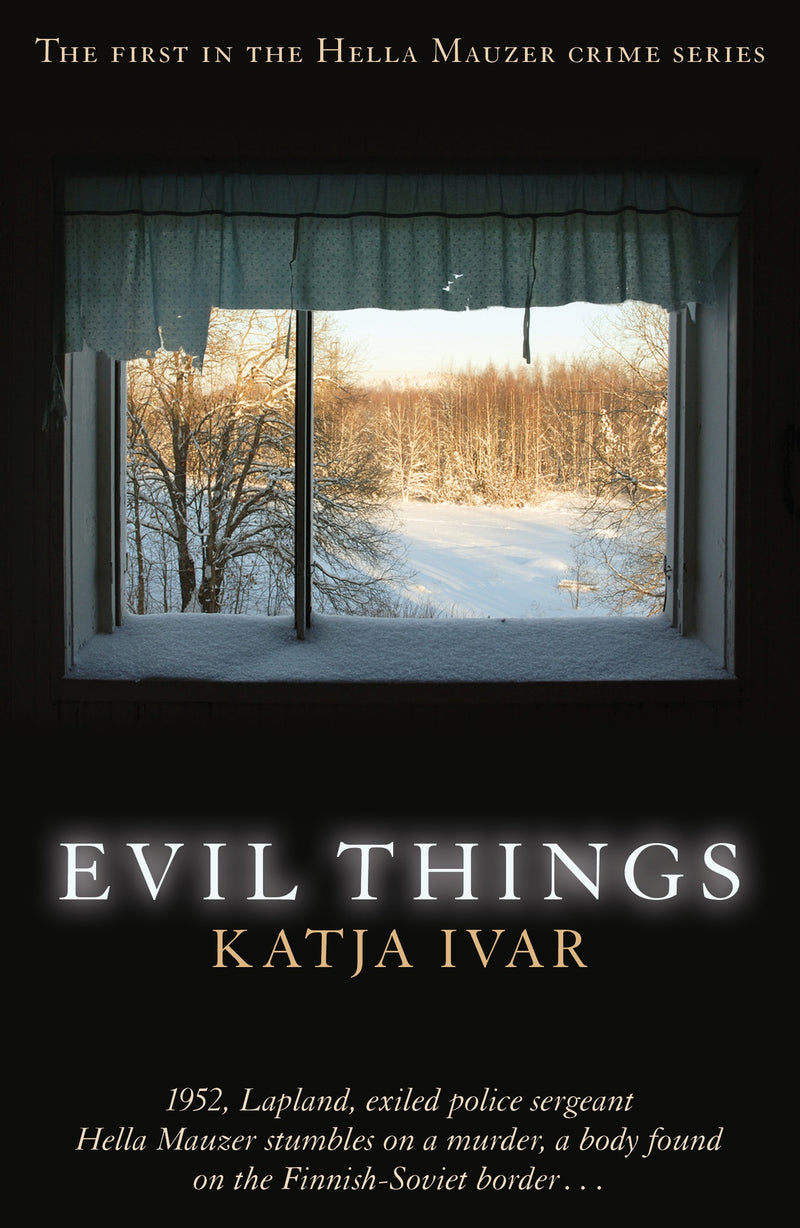Evil Things by Katja Ivar
Interview with the author—November 2018
1) What led you to this story?
A tragedy. I have always been a voracious reader, and I had this idea for a book for a long time, but somehow, I never actually got down to writing it.
Then, in February 2011, after nine months of a perfectly normal pregnancy, I gave birth to a stillborn daughter, Marguerite. The grief and the pain were overwhelming. Also the questions: for a while, there was no explanation to what had happened. I took to writing as a way to escape my own mind, to focus on a different time, a different place. Of course, it didn’t really work out that way: even if Evil Things is not telling my story, it is still a very heartfelt book, and it draws on certain elements of my own past. But at the same time, although Evil Things contains passages that are sad, in the end, it turned out to be a very life-affirming book.
2) What sort of research did it require?
Writing Evil Things was a fantastic challenge, drawing on my knowledge of contemporary history and writing about characters around my own age who are faced with life-changing choices. The book is set in a beautiful but very remote spot in Finland that I have visited several times as a child and that fired my imagination due to its proximity to the Soviet border, and to the fierce independence of its people. Evil Things is a book about a time, the height of the Cold War, and a place, a tiny village that gets caught in a conspiracy. It was important to get the atmosphere and the facts right. Being a bit obsessive, I spent hours exploring Finland’s National Police Museum in Tampere, and weeks driving mad all those nice people in Statistics Finland, making sure I’ve got the price of a kilo of frozen fish in 1952 down pat!
3) What themes did you want to explore in your novel?
For all its Cold War setting, Evil Things is a very contemporary novel, questioning our attitude towards the individual liberties and our habit of trusting the official narrative. Maybe it's not a surprise. I firmly believe that the past informs the present, throwing a light on our contemporary woes.
My heroine, Hella Mauzer, is Finland’s first ever woman police inspector. She is smart, she is competent, but she is also very stubborn, at a time when women are expected to shut up and be beautiful. Because she has a bad habit of contradicting her supervisors, Hella gets reassigned to a tiny police station in Lapland. And when a seemingly small and random crime turns out to be something much bigger, Hella is the only person brave enough - or mad enough- to look beyond the obvious. Ultimately, what I wanted to achieve was a book that would encourage the reader to question the behaviours and attitudes of people in authority. Oh, and at the same time, I also wanted to write a gripping police procedural. The sort of story that would make you gasp and make you think, long time after you have turned the last page.

